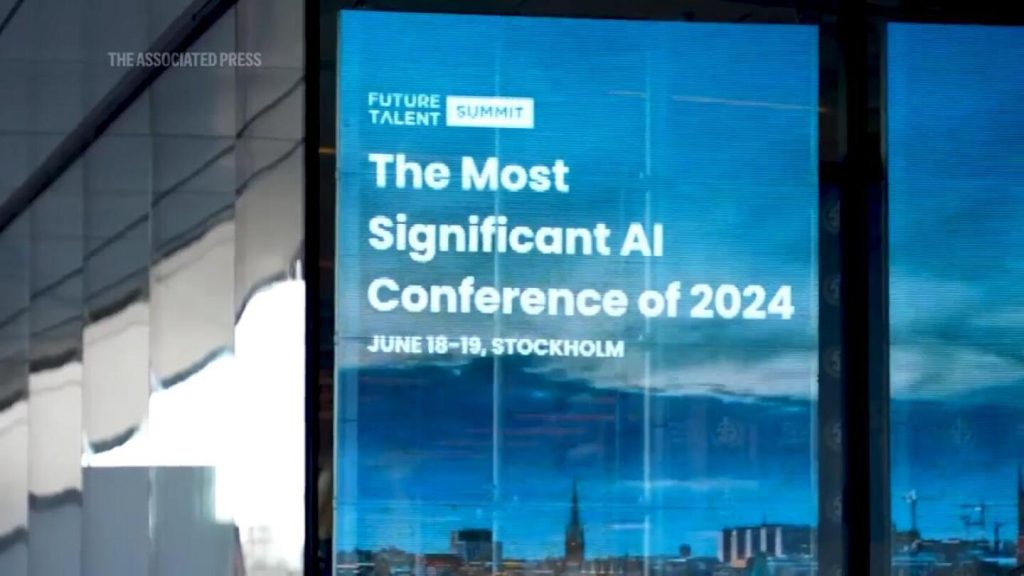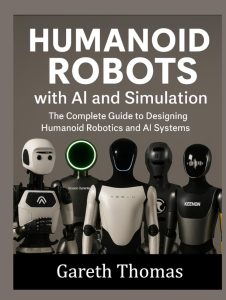AI Visions Explored: Utopia, Dystopia, or Alien?

Artificial intelligence (AI) is advancing at an almost dizzying rate. New announcements from big tech are coming thick and fast. However, not all of them are as groundbreaking as they claim to be.
At a recent summit in Stockholm, some of the world’s brightest minds gathered to discuss these rapid changes. The atmosphere was a mix of excitement and concern. While some experts were optimistic, others warned of potential risks.
Rapid Advancements
Artificial intelligence is growing fast. Big technology announcements keep rolling out. It’s hard to keep up. Even if some don’t live up to the hype, the pace of progress is staggering.
At a recent summit in Stockholm, experts gathered to discuss these rapid changes. Many are concerned. Some believe AI is evolving too quickly. Others think it’s just the beginning.
Different Visions
Opinions on AI vary widely. Some see it as a utopia, a perfect world made possible by technology. They envision machines handling routine tasks, allowing humans to focus on creativity and innovation.
Others are more skeptical. They worry about a dystopian future where AI controls every aspect of life. They fear loss of jobs, privacy, and even freedom.
Mixed in with these views are those who see AI as something almost alien. Alan Turing once said, “We can only see a short distance ahead, but we can see plenty there that needs to be done.” This quote still resonates.
Ethical Concerns
Ethics is a major issue when it comes to AI. Some fear that AI could be used for harmful purposes. There are worries about surveillance and loss of privacy. Others worry about biases in AI algorithms.
Many experts call for responsible development. They believe that AI should be transparent and fair. Deborah Johnson, an ethics professor, said, “We must ensure that AI serves humanity and not the other way around.”
Governments around the world are grappling with these issues. They are trying to create regulations to oversee AI development. Some argue that strict laws are needed, while others believe in a more flexible approach.
AI in Everyday Life
AI is already part of our daily lives. From voice assistants to recommendation systems, we use AI without even realizing it. These tools are designed to make life easier and more convenient.
However, there are downsides. AI can sometimes make mistakes. There are stories of AI misidentifying people or giving wrong recommendations. These mistakes can have serious consequences.
Despite these issues, many people welcome AI. They appreciate the convenience it offers. “AI is like a helpful assistant,” one user said.
Future Prospects
Looking ahead, the future of AI is both exciting and uncertain. Some predict that AI will surpass human intelligence. This idea is known as the Singularity. It could lead to unimaginable innovations.
However, the journey to that future is fraught with challenges. There are technical hurdles to overcome. Ethical and legal questions need answers. Society must be prepared for the changes that AI will bring.
Many experts agree that cooperation is key. Nations and organizations must work together to ensure that AI benefits everyone.
Public Perception
How people view AI varies widely. Some are excited about the possibilities. They see AI as a tool for progress and innovation. Others are fearful. They worry about the potential downsides.
Social media is full of debates on this topic. Some users praise AI for its advancements. Others share stories of AI’s failures. These discussions shape public perception.
Ultimately, the future of AI depends on how society chooses to deal with it. Will we embrace it or fear it? That remains to be seen.
Final Thoughts
AI is advancing rapidly, and opinions on it are equally varied. Some see it as a boon, while others view it with caution. As AI continues to evolve, the debate will likely intensify.
Artificial intelligence continues to grow at a rapid pace and its impact is felt in many areas of life. Some see it as a tool for progress and convenience, while others fear potential risks it might bring. The debate over AI’s future is ongoing.
As we navigate these advancements, it’s crucial to consider ethical concerns. How AI evolves will depend on how society chooses to manage it. Whether viewed as a utopia, dystopia, or something entirely different, AI’s development will shape the future in profound ways.
Cooperation between nations, organizations, and individuals will be key. By working together, it is possible to harness AI’s benefits while mitigating its risks. The future of AI is uncertain, but one thing is clear: it’s a journey that humanity is already on.





